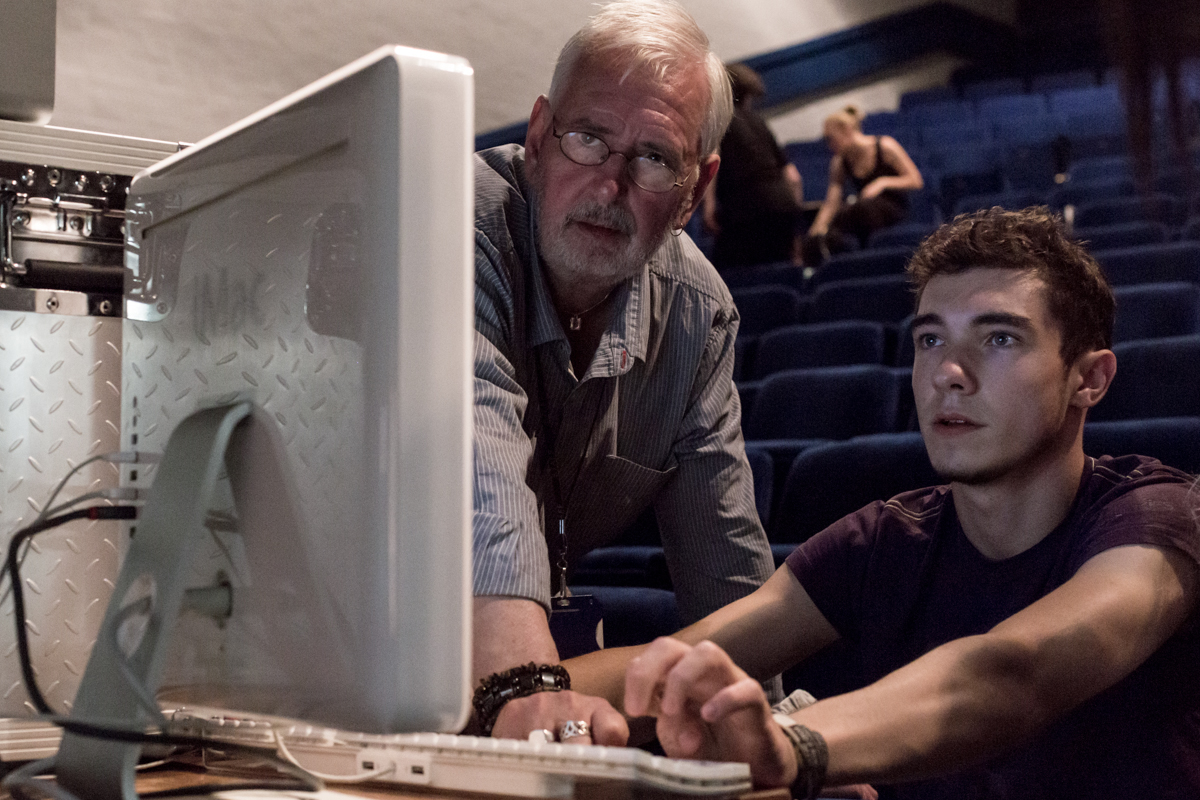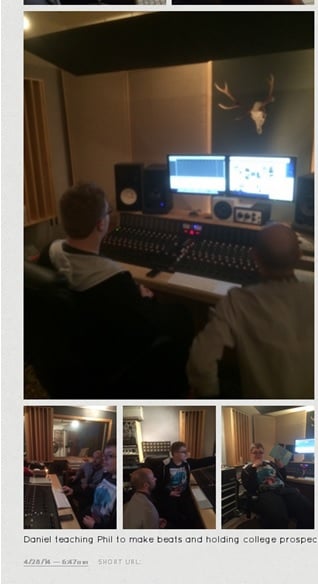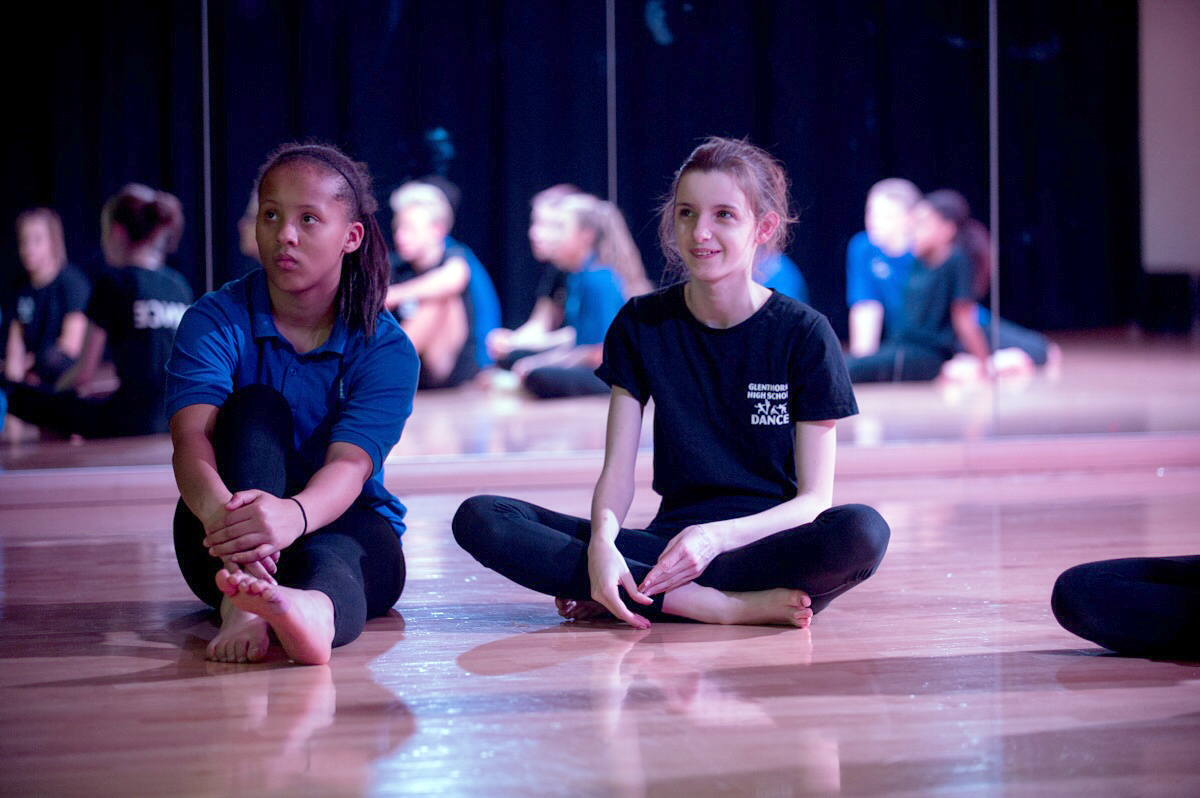
Arts Award and apprenticeships
BY: Guest Writer
05 Feb 2024
There are many benefits of completing an Arts Award alongside an apprenticeship. Here Emrys Green - who is an Arts Award adviser, Qualified Apprenticeship Assessor and achiever of a Level 7 apprenticeship himself - tells us more. His suggestions for how apprenticeships can connect with Arts Award will be useful if you are already supporting an apprentice or are interested in doing so.
What do Arts Award and arts-focused apprenticeships have in common? They’re both a great way to develop young people’s creativity and skills in the arts, and both are a valuable addition to a CV. Especially when a young person can use their experiences in both to their advantage and stand-out in the employment market.
What’s the difference though? An apprenticeship is an on-the-job training programme in a specific area of work, following a curriculum that helps the individual meet an ‘industry standard’. The requirements are pre-set and focussed on a particular job role, you could do an apprenticeship in roles such as Cultural Learning & Participation Officer, Digital Marketer, Content Producer, Event Assistant or Venue Technician. This is a great programme for developing specific skills, but a young person may also want to pursue related creative skills or develop leadership capabilities. This is where Arts Award comes in, providing a flexible framework that allows someone to choose an arts area which interests them and decide on a creative project.
The chosen arts area could have the same focus as the apprenticeship role, or an enhancement to it, for example: a young person doing an Event Assistant apprenticeship might want to combine this with their passion for music or art. An Events Assistance apprenticeship is a Level 3 apprenticeship (think study post GCSE) and so could be paired with a Gold Arts Award, also a Level 3 qualification. In Gold Unit 1 a young person will develop their own creative skills – learning a new art form, creating work, researching the industry, getting experience or attending workshops and creating an opinion piece. In Unit 2, they develop their own leadership project. This could be a project that showcases local musicians or artists in some form of event – gig or gallery exhibition for example. A young person would do more than assist, they will programme it, plan it, budget it, risk assess it, market it, evaluate it and manage the team of people that make the project a success. All of these activities will complement a portfolio of work for the apprenticeship very well.
If a young person is doing a Level 2 apprenticeship, they might consider completing a Silver Arts Award, so they can be working ‘to the same standard’ for both, but there is nothing to stop them complementing that qualification with a Gold Arts Award at Level 3.
Ideas for linking Arts Award to an apprenticeship…
Here’s a few examples of how Arts Award can support apprenticeships…
- A digital marketer apprentice could use Arts Award to develop their skills in typography, illustration, and composition. They could also use it to explore different design movements and styles.
- A Cultural Learning & Participation Officer apprentice could use Arts Award to develop their skills in acting, singing, or dancing. They could also use the personal arts development experiences in Gold Unit 1 to explore different theatrical traditions and performance techniques – providing greater context for their work with communities.
- A Junior Content Producer apprentice could use Arts Award to develop their skills in music production, songwriting, or performance. They could also use it to explore different musical genres and cultures to widen their breadth of experience and provide inspiration for their apprenticeship work.
- A film and TV apprentice could use Arts Award to develop their skills in cinematography, editing, or sound design. They could also use their experience to explore different filmmaking techniques and genres.
Benefits of Arts Award for apprentices…
Regardless of the level, Arts Award encourages young people to apply their learning and reflect on their experience, so it fits well with learning on the job which is core to the apprenticeship model. Young people get holistic experience of the arts sector, including arts production, reviewing, research, and project delivery via Arts Award. All these activities can be linked to their role as an apprentice, but they can include their personal interests in creating their Arts Award development plan, thus increasing motivation and independent learning.
Arts Award also supports wider knowledge of the arts and cultural sectors, encourages independently seeking development opportunities and how to reflect on their experiences. It broadens their horizons and encourages them to record this learning through the compilation of a portfolio of evidence.
Arts Award is widely recognised across the cultural sector as a qualification rooted in valuable work experience, and so can help boost young people’s employment prospects. It helps provide opportunities for unique interview answers when going for jobs or further and higher education courses – demonstrating self-directed practical experience and personal exploration, ideal for those questions that start ‘can you tell us a time when…?’
Joshua Gould did his Gold Arts Award as part of his apprenticeship with a community arts organisation in Norfolk. We asked him how it has helped his career in theatre since:
“The skills I picked up during my apprenticeship and Unit 2 project have led me around the world, producing shows, managing events on an international stage and has afforded me opportunities I could never have imagined!”
This is testament to the practical and self-directed nature of Arts Award that offers leadership development.
Benefits of Arts Award for employers…
Arts Award encourages and reinforces practical learning in real situations, encouraging apprentices to think, take responsibility, and develop leadership skills.
The independent learning that is encouraged ensures that young people network and connect with a wider group of people – bringing new connections, new ideas and countless possibilities for the development of projects and learning which can be vital when an apprentice is one of only a few people in their position in a given organisation.
Trinity’s three-year impact study, run by London Southbank University, reported that Arts Award can accelerate young people’s confidence, learning and achievement — creating more effective employees; enabling innovation and creativity.
How to offer Arts Award to your apprentices…
If you’re an Arts Award centre, then in-house delivery is easy. If you aren’t yet, then you could team up with a centre which could be your apprenticeship training provider, another local organisation, or work with a remote Arts Award centre like Upstart Projects who can provide support alongside the apprenticeship programme.
It will be a highly rewarding experience for the employer and young person, to help you get the most from it – here’s a few final tips to share that will help them on their way, and there’s many more available in the Arts Award on Voice hubs.
- Choose an arts challenge or arts practice that is relevant to their apprenticeship programme. This will help to develop skills and knowledge in a chosen discipline and ensure transferability of learning.
- Plan the leadership project carefully. Make sure that there’s enough time to complete the project ahead of finishing the apprenticeship and that the resources needed are available.
- Be proactive and seek out opportunities to participate in arts activities in the community. This could involve attending workshops, volunteering at local organisations, or participating in performances and exhibitions.
- Keep a record of progress. This will help to demonstrate achievements to the Arts Award adviser and compile the portfolio.
- Don't be afraid to ask for help from an adviser, colleagues, or other arts professionals. They can offer guidance and support throughout an Arts Award journey.
If you’re not yet delivering apprenticeships, then it may be worth considering doing so. It’s quite simple; get in touch with a training provider who will guide you through the process, recruit the apprentice you need, and then you will embark on the journey as a three-way partnership (the employer, training provider and young person). There are lots of providers available and you might want to get in touch with your local college or a specialist such as the National College for Creative Industries.
Emrys Green is the Head of Development at Upstart Projects. He completed his Silver and Gold Arts Awards between 2006 and 2008 and has since advised hundreds of young people, employed numerous apprentices, and worked as an apprenticeship assessor for colleges including Access Creative College, North Hertfordshire College and the National College for Creative Industries. He completed his own Level 7 Senior Leaders Apprenticeship in 2022.
Related posts
BY: Alan Lynch
BY: Guest Writer




Comments & Replies